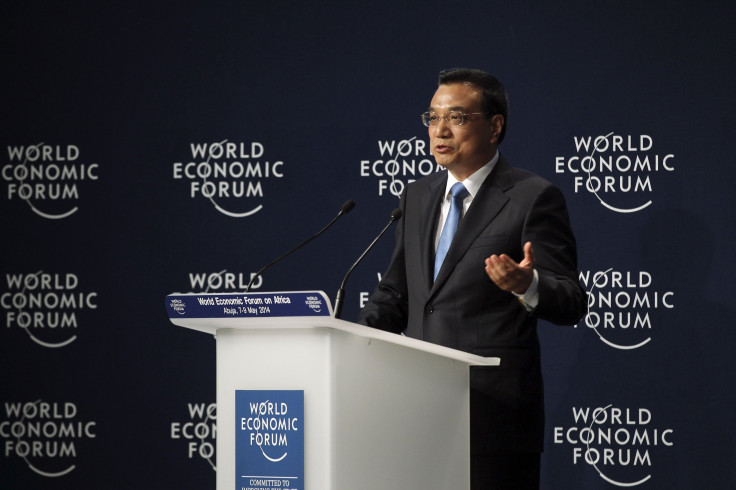What the Kenya Railroad Says About China's Approach to Africa

When China’s Prime Minister Li Keqiang announced a deal with Kenya to establish a new railroad, whose first stage will link the port city of Mombasa to the capital, Nairobi, he framed the arrangement in terms familiar to Sino-African relations:
"All China's support for Africa will come with no political strings attached," Li said. "We will not interfere with Africa's internal affairs or ask something impossible of Africa."
Li’s words neatly encapsulate China’s strategy in Africa, a continent with which the Asian country enjoys over $200 billion annually in trade. And the Kenya train investment is little different: Through China’s Exim bank, the country will loan Kenya $3.8 billion, 90 percent of the overall price tag, to finance the project, which is expected to take three and a half years. Eventually, the railroad will include stops in South Sudan, Rwanda and Uganda, linking major cities in arguably Africa’s most integrated region.
According to Kenyan President Uhuru Kenyatta, the railroad will lower freight costs from 20 U.S. cents a ton to 8 cents and will shorten passenger journeys in the process. And, unlike similar deals with European and American partners, China’s investment does not come with demands for transparency, media freedom or political openness. As Yoweri Museveni, Uganda’s longtime president, put it: “[The Chinese] don’t give lectures on how to run local governments and other issues I don’t want to mention.” The statement -- uttered the same week that U.S. Secretary of State John Kerry crisscrossed the continent -- seemed a clear message to Washington: that African governments beleaguered by the conditions that come with aid, such as abiding labor and environmental standards, have found a deep-pocketed alternative source of capital in China -- a source willing to let them run their countries as they see fit.
But a closer scrutiny of the deal reveals a more complicated relationship between China and Africa than Beijing publicly admits.
First, China’s investment in the railroad is not a gift, but rather an investment for which the country expects to profit. According to Winslow Robertson, Research Associate with the Chinese in Africa/Africans at the China Research Network, Exim Bank will charge 4.4 percent interest on a loan over 20 years, terms that “will probably work out well, financially, for China,” upon repayment, he said. Finances aside, the railroad also will reduce the cost of transporting east Africa's valuable natural resources -- South Sudanese oil, for example -- to Mombasa for export to China. Some Kenyan lawmakers have questioned whether the railroad’s cost will be worth it.
But the railroad also serves an important political purpose. Since China’s then-Premier Zhou Enlai first visited Africa a half-century ago, China has sought to frame its relationship with Africa as fellow developing countries just emerging from centuries of colonial meddling. In many ways, this sense of solidarity has had a profound historical effect. According to Robertson, African countries proved decisive in helping Beijing obtain U.N. recognition in 1971, and in the years since most of them have consistently supported the “One China Policy,” Beijing’s official stance on Taiwan. And, no less importantly, Chinese officials have shown no reluctance to deal with regimes like Sudan and Zimbabwe that Western powers have attempted to isolate.
But in recent years, China’s much-vaunted “win-win” approach to Africa has begun to fray. Chinese companies establishing operations on the continent typically use a mostly Chinese labor force, including cooks, and relatively few Chinese guest workers integrate with local African communities. A language barrier (Chinese middle managers generally do not speak English or French) makes communication with local workers difficult, and while Chinese workers typically endure brutal labor conditions without rancor, others may balk. While this approach has helped expedite Chinese infrastructure projects in Africa, resentment in local populations (notably in Zambia) has threatened the viability of some projects. Howard French, a journalist and author of the new book China’s Second Continent, which discusses China’s relationship with Africa, told me that "citizens are often very skeptical about the murky terms under which many big Chinese projects are negotiated and suspect a kind of unholy collusion between Beijing, Chinese corporate interests and the people that rule them."
This perception -- that China is a neo-colonialist power, no different from the Europeans who once ruled the continent -- is one that Beijing is eager to dispel. Speaking after the rail deal announcement, Premier Li said: “I wish to assure our African friends in all seriousness that China will never pursue a colonialist path like some countries did, or allow colonialism, which belongs to the past, to reappear in Africa,”
China’s investment in the East African rail project is designed, in part, to avoid the perception that China is only interested in extracting African resources. Zhang Xiangchen, China’s deputy minister of commerce, remarked on the trip that China is “paying more attention to livelihood issues.” and will be keeping a “closer look at issues relating to the public.”
As workers break ground on Kenya’s new railway, the citizens of the continent can only hope that Zhang’s words will be true.
© Copyright IBTimes 2024. All rights reserved.






















